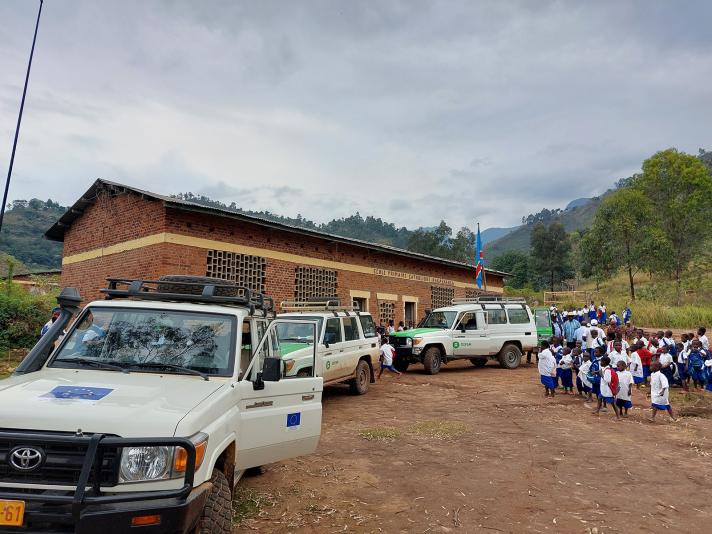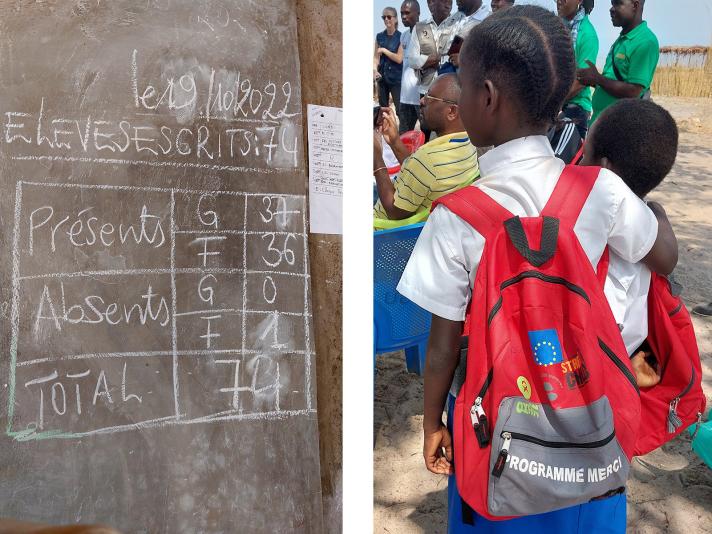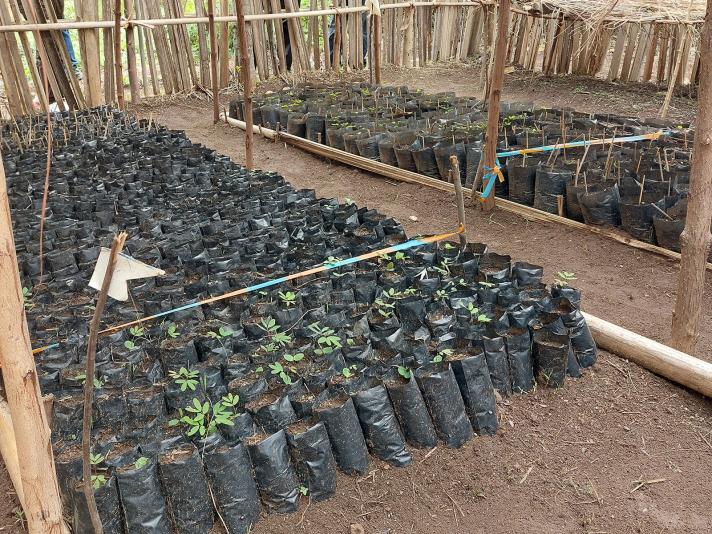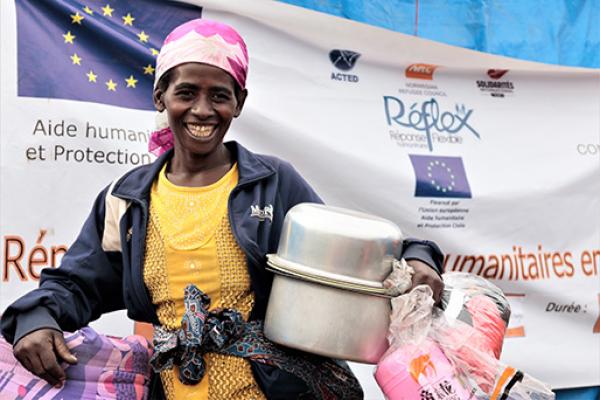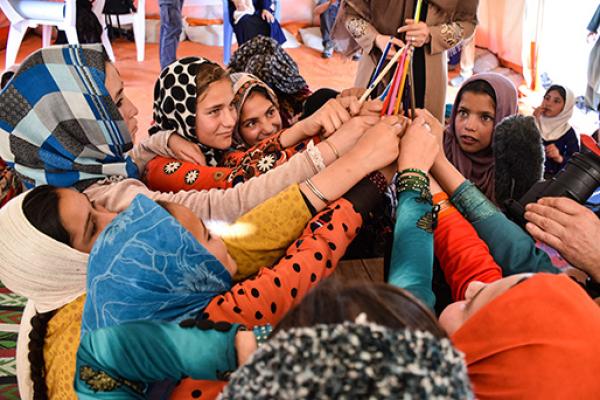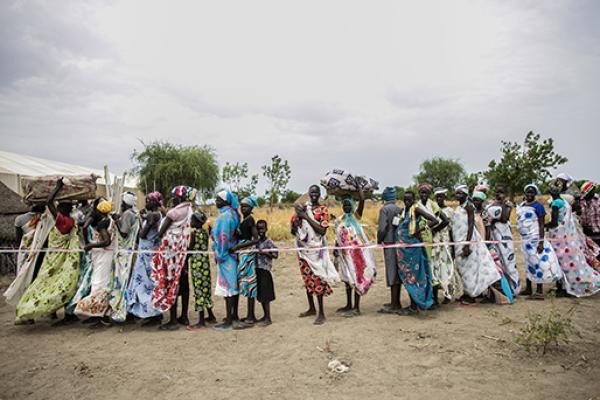Humanitarian needs in the Democratic Republic of the Congo (DRC) are among the highest in the world. People in the DRC have been facing persistent conflict and violence for decades.
There are currently over 5.6 million displaced people within the country – the highest number in Africa. More than 1 million Congolese refugees live in neighbouring countries. Due to the conflict, children cannot stay in school or go back to it.
Raphaële, who works for EU Civil Protection and Humanitarian Aid Operations, recently visited the South Kivu province in the DRC. Here, the EU and partners are running projects to support the construction and renovation of primary schools. Our funding also helps provide educational kits for children. Read her first-hand account.
Our convoy reaches the small village of Lemera, in the South Kivu province of the DRC, after a long drive on a bumpy dirt road running along a steep mountainside.
Physical access constraints and frequent clashes between local armed groups explain why remote communities in the Hauts and Moyens Plateaux of South Kivu receive few visitors.
The humanitarians in charge of the MERCI project (Multisector Emergency Response for Conflict Impacted populations) are among the exceptions. The project is funded by the EU and implemented by OXFAM Belgium and Street Child.
The goal of MERCI is to make a positive impact on the lives of more than 3,000 men, women and children heavily affected by the conflict, whether they are internally displaced populations, members of host communities, or returnees.
Education in emergencies
We stop in front of the village’s primary school. Immediately, dozens of children gather around the cars, welcoming us with curious eyes and shy smiles.
Many are wearing very simple uniforms and carrying brightly coloured backpacks: they form part of the educational kits that OXFAM and Street Child distributed to the young pupils at the start of the school year.
The project, launched a few months ago, includes the construction and renovation of 20 primary schools in 10 local communities.
Here, work has already started on one of the buildings: inside, the new cement floor is smooth and clean, and a large blackboard hangs on the wall.
Desks are still lacking in the classroom where far too many pupils are sitting together, but it is a decisive first step towards improving the learning conditions of children.
Caring for the environment
A few metres away from the school buildings, we visit the nursery garden.
The children have sown seeds which are already starting to grow. The small trees will later be planted around the school.
South Kivu’s forests are threatened by slash-and-burn farming as well as by the intensive use of wood as fuel to fire mud bricks and cook food. The project helps to raise community awareness about the need for reforestation.
Schools are the focal point of the MERCI intervention, which aims to protect vulnerable populations by creating a safer and more prosperous environment.
The smiling children who surround us are the promise of a better future for this conflict-torn community.
Story by Raphaële Magoni, Desk Officer DRC, EU Civil Protection and Humanitarian Aid Operations.
Publication date: 18/11/2022

